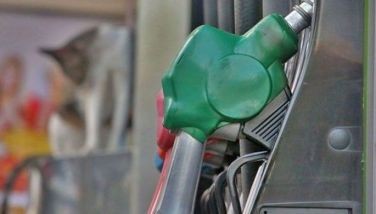Noy may struggle to keep investment pledge
MANILA, Philippines - President Benigno Aquino may struggle to keep his promise to give his country a modern infrastructure, including water and electricity supplies, if its history is anything to go by.
Mr. Aquino aims to build roads, railway lines, airports, seaports, power plants and water supply systems to attract more investment and bring jobs and economic growth to his struggling country.
He aims to make all this happen by following his late mother, ex-leader Corazon Aquino, who signed a “build-operate-transfer” (BOT) law in 1990 that helped the country emerge from a crippling energy crisis.
Under BOT the private sector puts up the capital, builds and runs the systems, and collects charges until they recoup their investments, at which time ownership passes to the government.
Next month Aquino is expected to invite bids for 10 projects worth nearly 128 billion pesos ($2.96 billion), and businesses say that as long as they are given a level playing field he should be able to raise the money.
These projects include two Manila rail lines, two Manila toll roads, four provincial airports and a new dam to augment the capital’s solitary source of tap water for its 12 million-plus residents.
However, businessmen and analysts say the Philippine record is mixed. Contract enforcement issues as well as periodic bouts of populism blight its attraction for big-ticket infrastructure investments, they say.
“The BOT law is, I think, a good framework, a good law,” Gilberto Llanto, of the Philippine Institute for Development Studies, told AFP.
“But somehow we faltered along the way, and the reason was — and I think it was inexcusable — weak institutions and bad governance,” Llanto said.
John Forbes, chairman of the American Chamber of Commerce’s legislative committee, which liaises with the Philippine parliament, said the BOT scheme had fared badly since its success in solving the last energy crisis.
“Very few projects of any size were accomplished in the last decade,” he said, citing the Manila airport terminal dispute with a consortium that included Germany’s Fraport AG.
In 2002 the government of then-president Gloria Arroyo unilaterally voided the 25-year airport concession, saying it was fraught with anomalies, and seized the facility two years later.
The affair continues to weigh on the minds of potential investors.
“There are many lessons to be learned and it’s very important to learn the lessons,” Forbes said.
Philippine geography “7,100 islands on the typhoon and earthquake belts” puts it at a severe disadvantage in international markets, said Llanto.
This makes infrastructure investments a priority, but with the government cash-strapped, there are no viable options for investment apart from the private sector.
However, if Mr. Aquino can get the country’s house in order, said Robert Sears, chairman of the local American Chamber of Commerce, the future could be bright.
“As long as there is transparency and there are clear-cut rules then I think it will encourage our investors to come back,” Sears told AFP in an interview.
So far, prospects for the new president’s projects are bright. The economy grew by a stronger-than-expected 7.9 percent in the first half, its best half-year expansion for more than 20 years, amid rising investor confidence.
And the stock market hit record highs this month on the back of inflows of foreign money. Share prices have surged 35.86 percent since Aquino’s May 10 election.
Francis Chua, president of the Philippine Chamber of Commerce and Industry, said there must be more clear-cut rules and that projects must be studied and prepared thoroughly before the private sector is asked to spend its money.
“The (government) should intensify the development of feasibility studies... and expand existing guidelines to allow greater private sector involvement and flexibility to participate in worthwhile projects,” he said.
Forbes said Mr. Aquino must make the process more transparent and ease concerns about regulatory and judicial risks, such as legal challenges from defeated rival bidders that can tie up capital for years.
Beyond Aquino’s priority projects, the Philippines also needs to move fast in building new power plants to head off another looming energy crisis, said Jose Almendras, the energy minister.
“To me what is critical is 2011 and 2012. If there’s an unscheduled maintenance of a 300-megawatt plant we will have outages,” Almendras warned in mid-October.
- Latest
- Trending

























